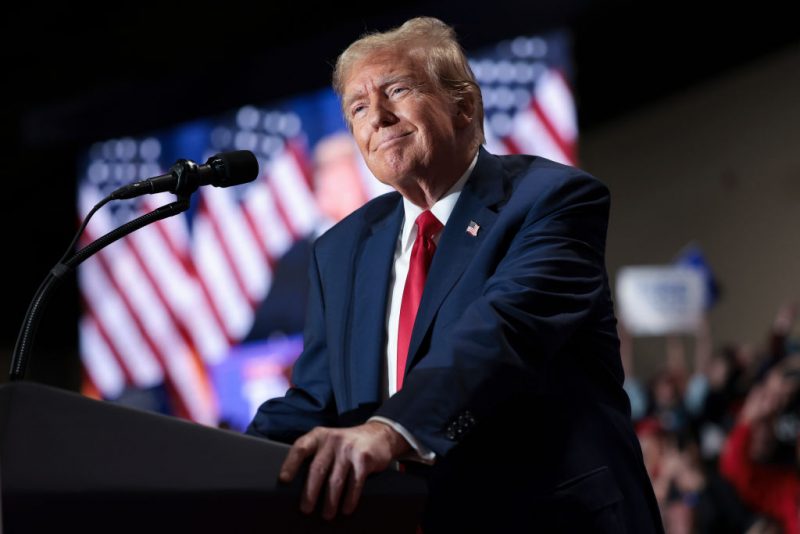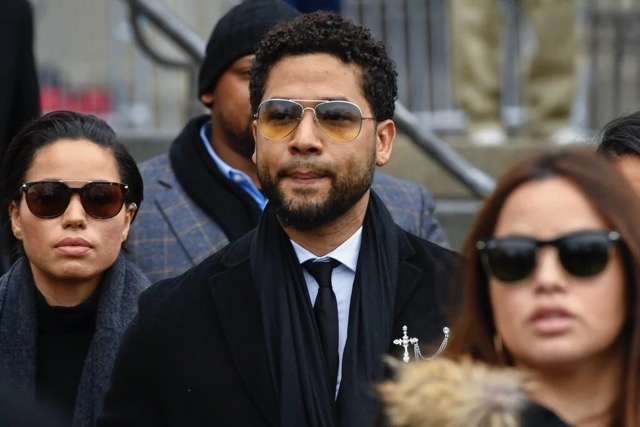President-elect Donald Trump is set to re-enter the White House on Jan. 20, bringing with him his populist agenda and raising questions about whether his policies will include another stimulus check.
While Trump, 78, is not expected to advocate for a third stimulus payment, he has pledged to provide other forms of economic relief for working- and middle-class Americans, including tax cuts and credits.
During his final year in office, Trump signed two stimulus checks into law: one for up to $1,200 in March 2020 and another for up to $600 in December 2020, as part of efforts to support the economy during the COVID-19 pandemic. Outgoing President Biden later added a $1,400 stimulus check in March 2021, completing the $2,000 payment Trump had pushed for in his final days before congressional Republicans blocked the measure.
Biden’s $1.9 trillion American Rescue Plan Act, which included the $1,400 checks, was widely criticized for contributing to four-decade-high inflation in 2022. Democrats in Congress added substantial spending measures to the bill, including $350 billion for state and local governments, $120 billion for K-12 schools, $75 billion for COVID-19 vaccinations, and $25 billion to support bars and restaurants.
What Trump Is Proposing
Trump won the Nov. 5 election on a platform that includes several economic proposals aimed at boosting Americans’ disposable income and spurring economic growth. Among these are plans to eliminate federal taxes on tips, overtime, and Social Security payments, as well as allowing buyers of American-made cars to write off loan interest, similar to mortgage deductions.
Trump has also proposed making in vitro fertilization (IVF) treatments—typically costing $15,000 to $20,000 per cycle—free through either insurance mandates or government subsidies to encourage childbearing.
Additionally, Trump aims to eliminate the $10,000 cap on state and local tax deductions, a policy implemented in his 2017 tax reform law that particularly impacted residents of high-tax states like New York and New Jersey.
Although these policies would give consumers more money to spend, Trump argues they would also drive economic productivity without fueling inflation, encouraging Americans to work harder to benefit from the proposed changes.
Some economic experts, however, have raised concerns about Trump’s other proposals, such as new tariffs on most foreign imports. Vice President Kamala Harris, during her failed presidential campaign, criticized such tariffs as inflationary “national sales taxes.” Trump used tariffs during his first term to pressure foreign nations into adopting trade policies more favorable to U.S. businesses, particularly targeting Chinese goods and steel and aluminum imports.
Why Another Stimulus Check Is Unlikely
Stimulus checks have historically been used during emergencies threatening severe economic downturns, such as the 2008 financial crisis, which saw a $600 rebate authorized. Currently, there is no comparable crisis, with the stock market near all-time highs and unemployment at just 4.1%.
Moreover, there is little political momentum for another round of stimulus checks, particularly among congressional Republicans, who will control both the House and Senate under Trump. Republicans have blamed Biden’s early-term stimulus policies for triggering inflation, which peaked at 9.1% in June 2022 and is now nearing the Federal Reserve’s target of 2%.
High inflation led to increased interest rates, burdening homebuyers and those with credit card debt. Trump has vowed to tackle both inflation and interest rates, leveraging public discontent over high costs to secure his return to the presidency. Since Biden took office in January 2021, the average cost of goods and services has risen by 21%, according to Bureau of Labor Statistics data.
Even prominent Democratic economists like Steven Rattner and Larry Summers have identified Biden’s 2021 stimulus as a driver of inflation, contributing to skepticism about new direct payments. The three pandemic-era stimulus payments were all means-tested, with reduced amounts for individuals earning between $75,000 and $80,000, and no payments for those above that threshold.
Potential Repeal of Biden Incentives
The Biden administration oversaw massive spending bills during its first two years, including the $1.2 trillion bipartisan infrastructure bill and the Inflation Reduction Act, which allocated an estimated $369 billion for environmental initiatives. However, Republicans may seek to roll back elements of these measures.
The House GOP has already worked to claw back unspent pandemic relief funds, securing $27 billion in unspent funds last year. State and local governments must allocate remaining pandemic funds by Dec. 31 or forfeit the money.
Individual benefits potentially on the chopping block include future tax credits of up to $4,000 for electric vehicle purchases, up to $14,000 for efficient home appliances and weatherization projects, and up to 30% back on solar panel costs.
It remains to be seen how Republicans will approach Biden-era spending, but with Trump’s renewed focus on curbing inflation and boosting economic growth, another stimulus check appears unlikely.
 Telegram is where we really talk. Don't miss out!
Telegram is where we really talk. Don't miss out!








